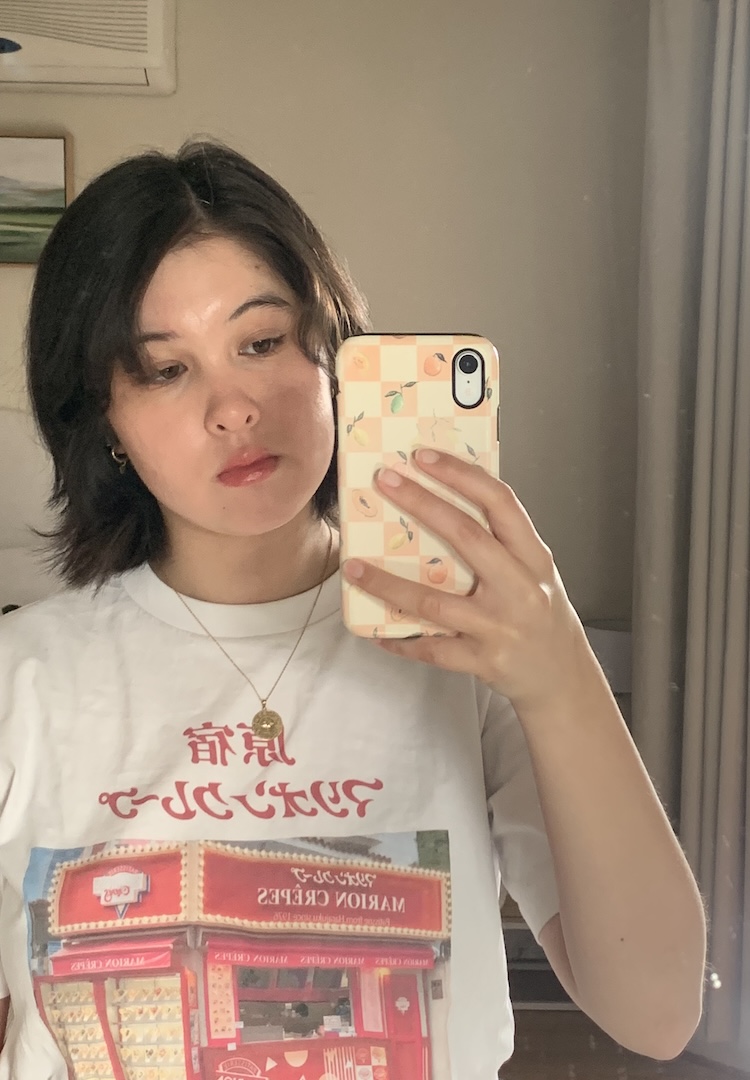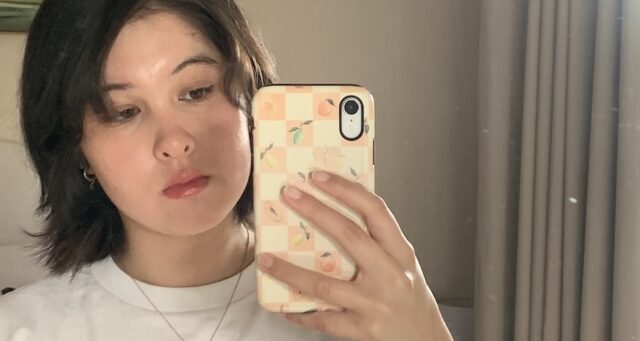
I would like to hedge this by saying that growing up in a town in regional Victoria, I was made to feel categorically unpretty.
Throughout school, comments about my eyes and my skin were made frequently, including a supposed friend pointing out the barely visible blackheads on my nose and blaming them on my ‘weird Asian skin’. I was once told it wouldn’t make sense for me to date anyone other than the only Asian boy in our year level. My hair was like straw, my fingers were too long and skinny, my mouth was too small and my nose was too big (those last two I truly do not understand). So you can probably understand my confusion when, at my casual job, customers started telling me how pretty I am.
For more perspectives like this, head on over to our Beauty section.
These comments made me truly uncomfortable. Not because mine is a dated Hollywood story where the protagonist (me) didn’t know she was beautiful until the proverbial glasses were removed from my face. No, it’s because comments like this are always coupled with probing questions about my ethnicity.
I’ll usually tell the stranger directly that I am half Japanese and half white Australian, to which they’ll nod knowingly or make some boring conversation about how beautiful Japanese culture is.
Other than being creepy, what bothers me most about interactions like these is the lack of boundaries. I think People of Colour (POC) have been discussing for decades how weird it is for strangers to ask about your ethnicity. Quite simply, it’s putting selfish curiosity above another person’s feelings and singling them out as different, treating them like some kind of rare breed of dog.
Always an outsider
Japanese culture has long been one that the West finds alluring. Australia is no exception, with record numbers of Australians visiting Japan in 2024. Our country’s love affair with Japan means that, while bringing Japanese food for lunch doesn’t receive the same ridicule from my peers at university as it did in primary school, I feel like I’m part of a fleeting trend and that someday, maybe, the West will get sick of me.
While the sentiment is different when I’m in Japan, I still don’t feel at home. Naively, last time I went there for a semester of study abroad, I thought I would feel a sense of belonging with Japanese people; that I would be able to blend in and be treated as a Japanese person, walking through the city in blissful anonymity. But alas, I felt even more like an outsider than I did in my regional hometown.
One time, I showed my bus ticket to the driver, which had my name written clearly in Japanese (霜手晶), and he told me my seat in English. I had a girl in my sports class run up to me one day and ask me essentially what my ‘other half’ was (どこのハーフなの?), then never speak to me again. I was buying some mochi during a New Year’s festival at Tokyo Tower and the woman at the stall spoke to me in English. At this point, I was so fed up I responded that I couldn’t understand English. She responded, “Oh, sorry, I just thought because you’re so pretty.” (ごめんね、かわいいから). It was utterly perplexing. There are countless more stories I could tell you about being denied my identity as a Japanese person; over and over again being told that I don’t belong there.
Half-white hafu
People like me are called ‘hafu’ in Japanese – half Japanese and half a non-Japanese ethnicity. It can be a pretty loaded term, where it’s sometimes used derogatively with connotations the person isn’t ‘whole’ or ‘pure’.
Japan, as still a largely monocultural country, has a problem with foreigners and diversity. The beautiful and unique culture that people perceive as Japan’s is wrought with intolerance for difference, and many Japanese people struggle to understand nuance in issues surrounding immigration and cultural identity. This can even be seen on a bureaucratic level, as Japan doesn’t allow dual citizenship (although I’ve found myself a loophole for that one).
I truly do love Japan, and a big part of me feels at home when I return there. There’s a deep-rooted familiarity in the sounds and smells of Japanese suburbia – the crispness of the dry winter after escaping Australia’s sweltering heat, the absolute joy I feel chowing down on my obaachan’s cooking, the cheerful traffic light tone as I traverse the tiny streets. But it’s a hard truth to realise that Japan doesn’t love me back, or even recognise me as one of its own.
One point I must acknowledge is that, while I am (and pass as) a person of colour, I’m also half-white and benefit from that proximity to whiteness. Other Hafu whose other ethnicity is non-white face a different set of challenges to me – one that I will never experience. In a strange way, while white people are treated as foreigners and outsiders, they’re still held on a pedestal in Japan and many other Asian countries. Seen as the epitome of the Western world, they’re talked of fondly and have had great influence on the country’s beauty standards. There’s a ‘correct’ way to be hafu, and most of the time, that is to be half-white.
It seems that in both Japan and Australia, half of me is exotic enough to be interesting, and the other half is familiar enough to be comforting. Living in this paradox of wanting to belong to both, but belonging to neither, is an experience many mixed-race people know well. I just wish it didn’t have to come down to our looks all the damn time.
Read more from Akira here.
This article As a mixed-race person, please don’t call me pretty appeared first on Fashion Journal.
2025-05-23 07:57:00
#mixedrace #person #dont #call #pretty
Source link
















